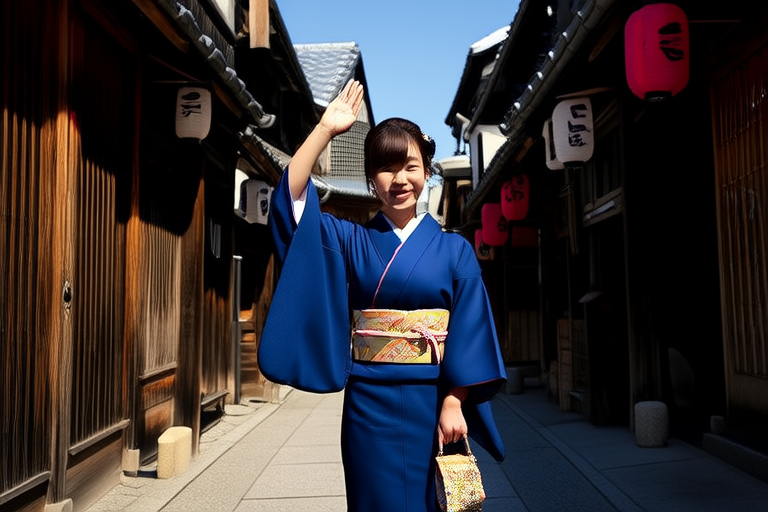Cultural Etiquette 101: Understanding Customs Around the Globe

“`html
Cultural Etiquette 101: Understanding Customs Around the Globe
Introduction
Understanding cultural etiquette is crucial when traveling to different parts of the world. Respecting local customs not only enhances your travel experience but also fosters positive interactions with locals. The diversity of global cultures is vast, and being aware of these differences can make all the difference in your travels.
This article provides essential cultural etiquette tips for travelers visiting various regions. By adhering to local customs, you can ensure that your interactions are respectful and meaningful.
General Guidelines for Travelers
When encountering unfamiliar customs and traditions, it’s important to remain open-minded and adaptable. Non-verbal communication, such as gestures and body language, varies significantly across cultures. Being mindful of these differences can prevent misunderstandings.
Appropriate dress codes and attire are also crucial. In some regions, conservative clothing is expected, while in others, more casual wear is acceptable. Additionally, punctuality and time perception differ widely. In some cultures, arriving a few minutes late is considered acceptable, while in others, it may be seen as disrespectful.
Asia
Japan
In Japan, bowing is a common greeting, and the depth of the bow reflects the level of respect. Gift-giving is also an important custom, and gifts should be wrapped elegantly. Removing shoes indoors is customary in many homes and traditional establishments.
China
Greetings in China often involve a handshake or a nod. Dining etiquette includes using chopsticks properly and avoiding pointing them at others. Numbers hold significant meanings in Chinese culture, so be cautious with certain numbers that are considered unlucky.
India
Removing footwear before entering homes or religious sites is a sign of respect. Use the right hand for eating and giving/receiving items. Show respect for elders by addressing them with honorifics and seeking their guidance.
Europe
France
Table manners are important in France, and proper etiquette includes waiting for the host to begin eating. Tipping is customary in restaurants, and personal space is valued during conversations.
Italy
The family is central to Italian life, and strong bonds are maintained. Gestures are a significant part of communication, and maintaining eye contact shows confidence and respect.
Germany
Punctuality is highly valued in Germany, and addressing people by their titles is a sign of respect. The concept of Gemütlichkeit (cosiness) emphasizes comfort and warmth in social settings.
Africa
Egypt
Dress modestly in Egypt, especially when visiting religious sites. Greetings are important, and showing respect through verbal exchanges is customary. Hospitality is highly valued, and guests are often treated with great care.
South Africa
Respect for elders is paramount in South African culture, and extended families play a significant role. The concept of Ubuntu (humanity) emphasizes community and shared responsibility.
Morocco
Remove shoes before entering homes in Morocco, and hospitality is a cornerstone of social interaction. Mint tea is often served as a symbol of welcome and friendship.
North America
United States
Personal space is valued in the United States, and punctuality is highly respected. Tipping is customary in many service industries.
Canada
Politeness is key in Canadian culture, and multiculturalism is celebrated. Saying “sorry” is a common practice, even for minor inconveniences.
Mexico
Address people by their titles and surnames, and the concept of familia (family) is deeply rooted. Hospitality is a significant aspect of Mexican culture.
South America
Brazil
Personal space is valued in Brazil, and punctuality is important. Simpatia (good-naturedness) is a key social value, emphasizing friendliness and kindness.
Argentina
Respect for elders is paramount in Argentina, and family gatherings are cherished. Mate (herbal tea) is a social drink shared among friends and family.
Peru
Remove shoes before entering homes, and the significance of Andean culture is profound. Reciprocity is a core value, encouraging mutual support and cooperation.
Australia and Oceania
Australia
Personal space is valued in Australia, and informal greetings are common. The concept of mateship (friendship) emphasizes camaraderie and loyalty.
New Zealand
Respect for Māori culture is essential, and the hongi (nose-touching greeting) is a traditional form of welcome. The marae (meeting house) is a significant site for gatherings and ceremonies.
Fiji
Remove shoes before entering homes, and the kava ceremony is an important social ritual. Vakamarama (welcome) is a core concept, emphasizing hospitality and friendliness.
Conclusion
By understanding and respecting cultural etiquette, travelers can enrich their experiences and build meaningful connections with locals. Being open-minded and adaptable is key to navigating the diverse customs of the world.
Continue learning about cultural etiquette to ensure that your travels are both enjoyable and respectful. Embrace the richness of global cultures and carry these lessons forward in your interactions.
“`